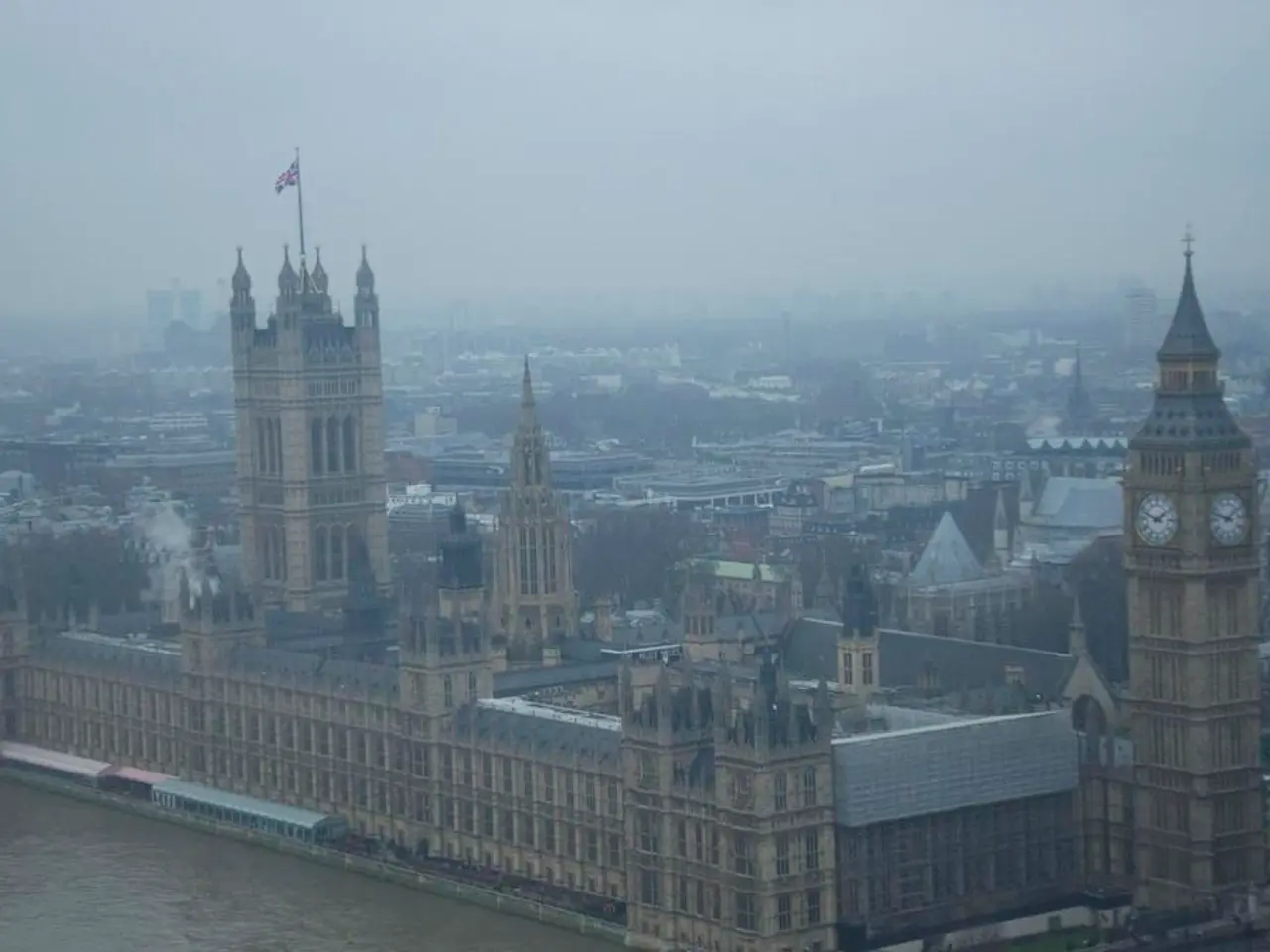Intense rainfall anticipated in Pakistan until August 13th, causing monsoon-related fatalities to surge to 303.
Monsoon Rains Forecast in Pakistan: Widespread Rainfall and Potential Flooding
Pakistan is bracing for another round of monsoon rains from August 8 to August 13, 2025, with some regions experiencing intense downpours and potential severe weather. The Pakistan Meteorological Department has issued this forecast, warning citizens to take precautionary measures.
The monsoon rains are influenced by a western system combining with monsoon winds, bringing heavy rainfall to Punjab, Sindh, Khyber Pakhtunkhwa (KPK), Kashmir, and Gilgit Baltistan. Southern Balochistan is expected to remain mostly dry.
The impact of these rains will be felt across several regions in Punjab, Sindh, KPK, Kashmir, and Gilgit Baltistan. Eastern Sindh, northeastern Punjab, and northern KPK are under heavy rainfall, with risks of flooding and localized severe weather, especially cloudbursts. Upper parts such as Islamabad and surrounding areas will see rain/thundershowers, with scattered heavy falls from August 14 to 17. Kashmir and Gilgit-Baltistan may have widespread rain with scattered heavy to very heavy falls, particularly from August 18 onward.
Karachi and most of southern Sindh are expected to experience only intermittent light rains or drizzle. Temperatures will drop by 2–3°C below normal in about 90% of the country due to cloud cover and rain.
In light of these forecasts, the Director General of Punjab's Provincial Disaster Management Authority (PDMA), Irfan Ali Kathia, has requested citizens to take precautionary measures during the monsoon season. He advises keeping children away from streams, low-lying areas, rivers, and canals and strictly avoiding swimming during rainfall.
Unfortunately, these rains have already claimed at least 303 lives in Pakistan, with over 700 people injured due to the unusually heavy rains that started on June 26. The 2022 floods resulted in over 1,700 deaths.
The National Disaster Management Authority of Pakistan has announced that isolated rainfall is expected across most parts of the country from August 8th to 13th. There are fears of a repeat of the catastrophic 2022 floods that submerged a third of Pakistan. This flood has already damaged infrastructure and put dozens of homes at risk in the mountainous Gilgit-Baltistan region.
Stay alert for flood risks, especially in flood-prone and low-lying urban areas in Punjab, Sindh, and northern KPK where intense rain and cloudbursts may cause flash floods and landslides. Keep track of daily weather updates from the Pakistan Meteorological Department or local authorities to respond quickly to weather changes. Avoid unnecessary travel in affected regions during heavy rain spells to reduce risks from accidents or road blockages.
Farmers should monitor weather to protect crops from heavy rain and flooding, especially in upper and northern areas where rains are heavy. Urban drainage systems should be cleared in advance in cities like Lahore, Islamabad, and Peshawar to manage the heavy rainfall runoff.
[1] Pakistan Meteorological Department updates [2] Recent weather broadcasts [3] National Disaster Management Authority of Pakistan [4] Farmers Advisory [5] Urban Drainage System Advisory
- The latest news updates from the Pakistan Meteorological Department indicate that the upcoming monsoon rains will bring not only heavy rainfall but also potential flooding, particularly in Eastern Sindh, northeastern Punjab, and northern KPK, significantly impacting the art and cultural scenes as people focus on safety and relief measures.
- Given the severity of the aforementioned weather forecast, the National Disaster Management Authority of Pakistan advises citizens to stay alert for flood risks, especially in low-lying urban areas, by keeping track of daily environmental-science and weather updates from authoritative sources like the Pakistan Meteorological Department.
- As farmers in Pakistan prepare for the upcoming monsoon season, it is crucial they pay close attention to the Farmers Advisory issued by the authorities, focusing on protecting their crops from heavy rain and flooding, especially in the upper and northern areas where rains are predicted to be intense. Additionally, taking steps to manage the urban drainage system, such as clearing it in advance, will be essential in cities like Lahore, Islamabad, and Peshawar to handle the heavy rainfall runoff effectively, thereby reducing risks and preserving the local environment.







